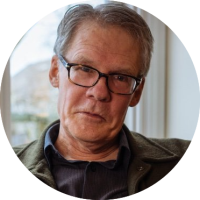ROUNDTABLE: CLIMATE DEFENDERS AND THE NECESSITY DEFENCE

Centre for the Law and the Environment Assistant
Mar 13, 2023

Facing an increasingly severe climate emergency and a rapidly closing window for collective action to avert the most catastrophic effects of global heating, countless individuals around the world find themselves with no choice but to engage in non-violent direct action in defence of the climate system and the human and other beings whose lives depend on it, and in defence of the Indigenous peoples whose lands, air and waters are sacrificed to prop up fossil fuel-dependent extractivist economies.
These individuals face increasingly draconian laws and increasingly aggressive enforcement tactics by industry, police and prosecutors. Many of them, when facing criminal prosecutions for trespass, nuisance, property damage or violation of civil injunctions awarded to private companies, have tried to invoke the ancient common law defence of necessity to excuse non-violent acts of civil disobedience that might otherwise be unlawful. A few have succeeded; most have failed.
A handful of courts in the United States have acknowledged that the necessity defence should, in principle, be available to climate defenders if legal avenues for protest are ineffective, and have allowed such defendants to put the necessity defence to the jury. So far, however, no climate defendant has been acquitted on this basis.
Canadian courts have been less receptive to the necessity defence in cases involving environmental or Indigenous land defenders. British Columbia courts have been especially hostile, refusing to allow anti-pipeline protesters even to raise the defence. The BC Court of Appeal has ruled that environmental defenders have many alternatives to breaking the law, including simply doing nothing as the climate emergency passes a point of no return. It has also ruled that the necessity defence is never available to avoid legally authorized harm, such as a tar sands pipeline or clearcut logging of old growth forest.
The Centre for Law & the Environment (CLE) at the University of British Columbia hosted a roundtable discussion of experiences with and future prospects for the necessity defence for environmental and climate activists charged with crimes in Canada and the US. The discussion featured a Canadian climate defender and retired lawyer who was barred from raising the necessity defence in his trial for criminal contempt of an injunction against protesting the Trans Mountain Expansion pipeline; a lawyer who represented Greenpeace Canada in its unsuccessful bid to intervene in the Trans Mountain case; the executive director and managing attorney of the Climate Defense Project, which has represented climate defendants in numerous criminal cases in the US; and the co-director of a powerful series of documentary films on necessity, climate activism and Indigenous land defence.
WATCH A RECORDING OF THE SESSION
ABOUT THE PANELISTS

- Centre for Law and the Environment






